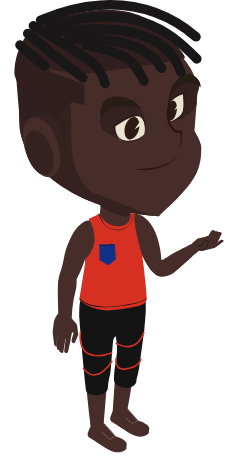Students with diverse abilities and skills can build their science knowledge with Penda Science. From auto-assigning activities based on individual mastery to translation from English to over 60 languages and sophisticated text-to-speech capabilities, Penda supports the inclusive classroom and makes science mastery fun, engaging and possible for all students.
Integration with Immersive Reader, a Microsoft Learning Tool, makes all of Penda’s interactive, digital science activities accessible to learners of all abilities.
Using cutting-edge natural language processing (NLP) technology, Penda activities can be translated into more than 60 languages.
English Language Learners (ELL) can choose to view activities completely in their native language or select individual words to
translate. Read-aloud in English and other languages further increases access to science content as ELLs develop their language
skills.
Penda activities are fully accessible to students struggling to read and can even help build fluency and comprehension. Features like
text read-aloud with simultaneous highlighting, breaking words into syllables, isolating parts of speech, and a picture dictionary help
students navigate text and engage with content that may be at a higher level than their reading ability.
Students with word-reading difficulties such as dyslexia will also benefit from flexible display features like increasing the space
between lines and letters, changing the background color of text, and narrowing the focus of their reading to just one, three or five
lines at a time.
Penda is designed to meet students where they’re at in their learning. Every student’s Penda activities are auto assigned and
scaffolded based on their skill and mastery level. A built-in feedback cycle supports independent learning by providing students with
opportunities to review and practice concepts they’re struggling with.
The ability to increase the size of text and advanced read-aloud capabilities, that even allow students to select the speed of reading
and a male or female voice, help students with visual impairments or learning differences to access Penda content independently.
